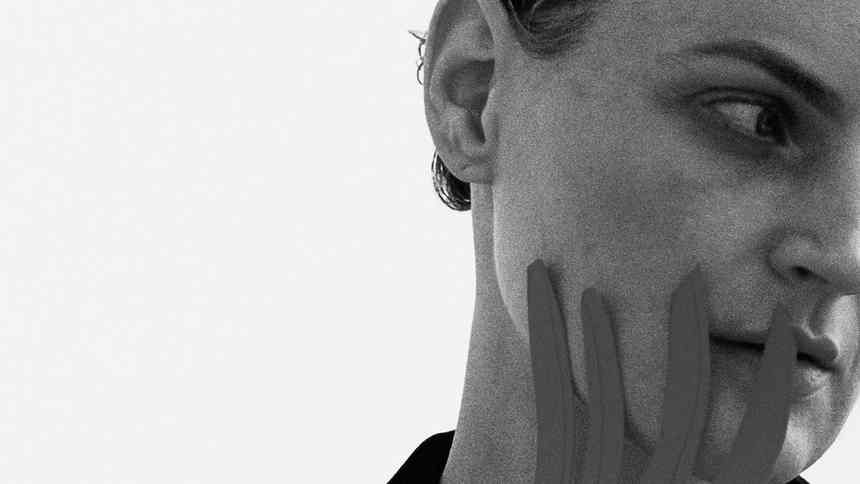It’s been a good year for cancelling. There’s the pandemic, of course, which crushed all of our plans and some hopes and dreams along the way. But there were also more specific cancellations. From celebrities – Jimmy Fallon, J K Rowling and Ellen DeGeneres – to brands like SoulCycle and Oatly (as well as a fair few “normal” people), if you spoke, tweeted, or acted in an unfavourable way in 2020, chances were you’d be swiftly shunned for it.
Cancel culture – which sees individuals and brands spurned due to comments, actions or stances that some perceive to be wrong – is nothing new. “Fundamentally, cancel culture is about shame,” explains chartered psychologist and author of How To Build A Healthy Brain, Kimberley Wilson. “Shame emerges in response to the feeling that we have transgressed against some agreed social rule and lost status within the group.” Wilson says that evolutionary psychologists believe shame played a role in our survival – one upon a time, doing something that got us expelled from our tribe would have been life threatening.
But while being ostracised from society for wrongdoings has been a risk throughout human history, and while we’ve always – rightly – called attention to injustices, social media has given rise to a particularly virulent form of mob justice that is degrading our (already taxed) mental health.
Read More8 Ways To Improve Your Mental Immunity

“Social media has democratised shaming (we can all shame anyone we like), simultaneously expanding its reach, stripping away any mitigating or humanising context, and leaving a permanent paper trail of what might have been a momentary indiscretion,” says Wilson. She believes ones of the biggest mental health risks of online cancelling is the “pile on” – the fact that within minutes a person could be verbally attacked by thousands of people. “For the ‘cancelled’ person it can feel as though they are being attacked by the whole world.” For anyone watching, there’s the feeling you could easily be next.
In its current form, cancel culture is anonymous, fuelled by a pack mentality, and intensely polarising – “I am right, you are wrong.” It teaches us that if someone does something wrong, or champions someone or something that we may not like or agree with, then we must stop supporting them immediately. No grey areas allowed: they’re cancelled, they’re finished, and their name is attached to the #IsOverParty hashtag to prove it.
However, while calling out bad behaviour might be important, a culture that encourages people to be quick to cancel and reluctant to forgive is dangerous. It creates an environment that doesn’t allow anyone to correct their behaviour (they should’ve known better), nor learn from their mistakes. And after all, mistakes, without sounding trite, are part of what makes us human. They’re how we grow and develop as people.
“Cancel culture often denies the cancelled individual the most basic of human opportunities: to apologise and to be absolved,” explains Wilson. “Because the road to redemption is blocked by the indignant mob.” A quick apology is viewed as insincere, a slow one as being issued under duress, and the matter can still be resurrected days, weeks, even years later.
Children learn through mistakes. And no matter the severity of their mistake, we teach them to admit their wrongdoings, to apologise, demonstrate remorse, make amends, learn and grow. Cancel culture, by denying adults the same opportunity, disregards our imperfect nature and stymies our potential for growth.
In terms of benefits to “cancelling”, there are a few. As with ancient ostracisations, the fear of shame can potentially keep our behaviour in check. Plus, it gives a voice to people who may otherwise be powerless – creating tangible consequences for those who have more power in society, such as large, multinational brands.
However, while public shaming can make an individual less likely to repeat a behaviour, and consumer opinion can lead to significant and positive shifts in a company, the majority of cancelled victims are not powerful people or brands. For every celebrity moved to sign an open letter disavowing cancel culture, there are 10 vulnerable people who quietly suffer personal, devastating harm – as well illustrated in Jon Ronson’s 2015 book, So You’ve Been Publicly Shamed.
Ultimately, the collective bullying and cancellation of individuals for relatively minor, one-off events or comments (without the possibility of reform), often outweighs the harm caused by the actual event or comment. Should someone lose their reputation or their job – their entire livelihood, upon which perhaps their family also depends – because of one tweet? Do they deserve to have their lives torn apart, their homes targeted, death threats flooding their inboxes? It’s rare that Obama and Trump agree on anything, but both have spoken out against cancel culture. Trump compared it to totalitarianism (which seems a bit rich, to be honest), while Obama observed: “The world is messy, there are ambiguities. People who do really good stuff have flaws. People who you are fighting may love their kids. And share certain things with you.”
Good mental health depends on flexibility, on compassion, and on understanding. It relies on apologies and forgiveness, and (like any good penal system), sees mistakes as an opportunity not for punishment, but for reform. When it comes to cancelling, don’t give in to online peer pressure – do your own research and allow people to be sorry. We’ve all said and done stupid things that we regret. We’ve all made mistakes. And we all deserve second chances, even on the internet.
Wilson’s advice for someone who’s been cancelled:
- Get off social media. It is utterly overwhelming to be confronted with tens or hundreds of people giving you their opinion of you or your behaviour. It is too much for us to process. Turn your phone off, uninstall the apps (at least for a while), give your phone to someone else to screen for you.
- Try to hold on to who you know yourself to be. Those who are cancelling you are likely to be telling you what kind of person you are based on one event. But each of us is more complex than a single incident. Connect with people who truly know you.
- Reconnect with the world. It’s easy to forget in the midst of a social media storm that there is an entire planet out there where no one knows (or cares) about what you might have done. Spending some time in the real world, particularly in nature, can help to shift your perspective and remind you that, even if it feels like it, the whole world isn’t out to get you.
- Remember that cancelling is not actually about morality; it about dominance. It’s not an attempt to help you be a better person or see a genuine error (people can reach out in private to do that). It’s an attempt to control you. The people doing the cancelling do not have the moral high ground.
More from British Vogue:








